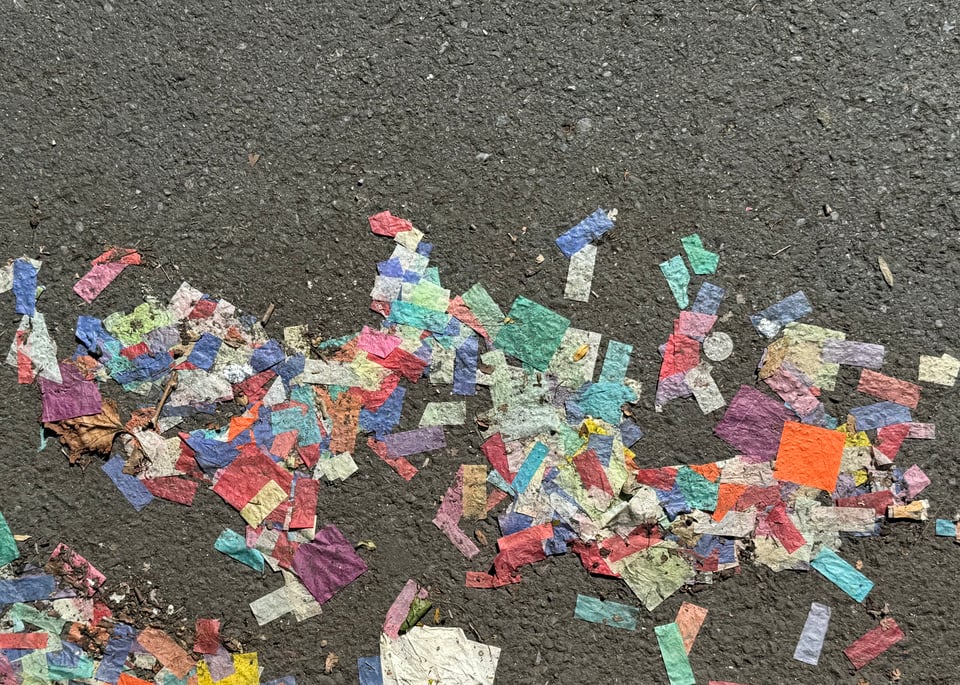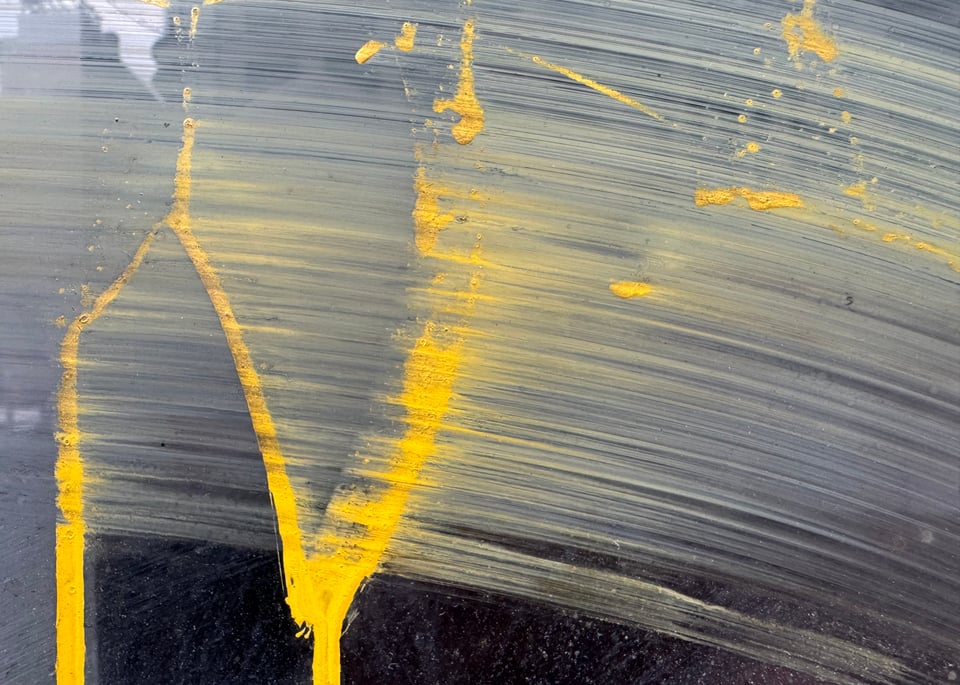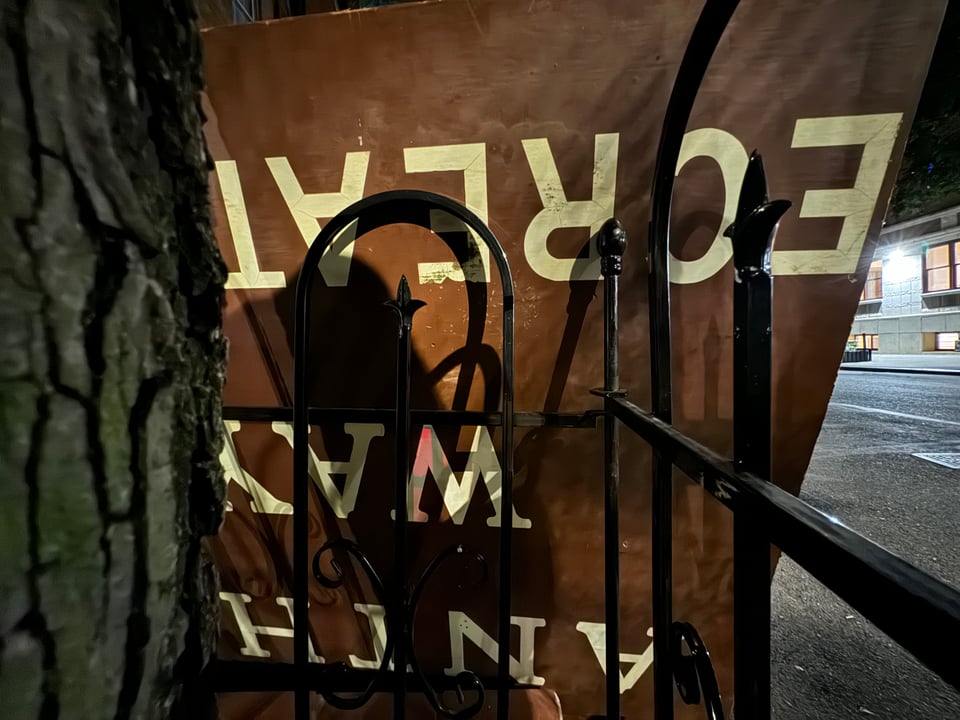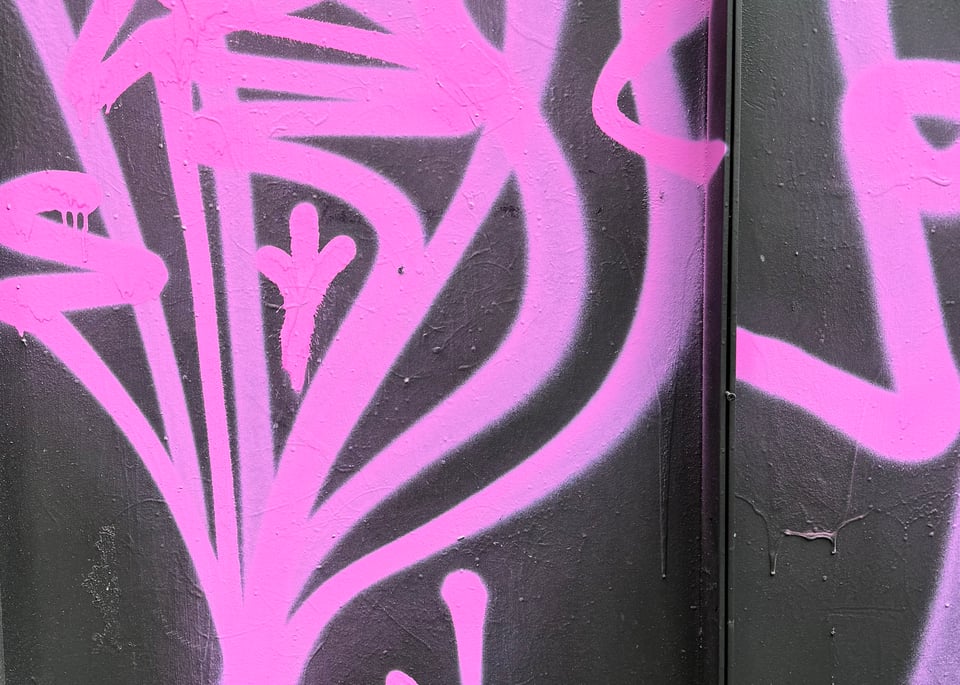October 2 2024

Grief on behalf of others begs a few questions. If we are trying to imagine the pain of people we don’t know, what do we think joins us? Are we imagining a communal body because God is resident within each of us to an equal degree? Or do we only share material bonds which force us into the same cohort of exploitation? I enjoyed my yogurt made on your grandfather’s farm. Hope you’re well.
When does a life without money show itself? Or, more specifically, how can we allow ourselves to acknowledge experiences whose nature has nothing to do with money? In “Summer’s Over,” a new piece on the encampments written by the anonymous collective who publish as (or who are) The Bad Side, there is this: “Hijacking a park or square, unplugging a particular place from everyday hatefulness and alienation, securing and sustaining a zone where there’s no money or hunger or cops: these are real, profound phenomena” (emphasis mine). This line is connected to another, which I mention in a review in 4Columns of the n+1 collection. (Parallel motion here: n+1 has also republished “Summer’s Over” on their website.)
I wrote: “One of the best expressions of how it felt to be alive in 2020, and again in these last few months, is in ‘Not One Tree,’ where direct action is described as ‘a swarm, a spontaneous, collaborative choreography’ that triggers a feeling that is ‘not exactly solidarity, but something even stranger and more miraculous, closer to goodwill.’ I regularly recite not those lines but the declarative statement that follows: ‘There is no money in the forest.’”
So we are in the forest or we are not. We just lost one of the best guides ever: Fredric Jameson. Jameson taught me that the texts and ideas I fear are likely just folded over a few times and will yield to patient investigation, and that the pleasures of analysis reach far beyond the professional categories of “criticism” or “academia.” Jameson’s combination of intellectual ferocity and interpersonal gentleness is an actual think-about-it-often level attribute and only Robin D.G. Kelley springs to mind as someone with the same build, though I am sure there are others.
For the moment, all of the following is free. There is “The Years of Jameson” list from Critical Inquiry and Verso’s Jameson at 90 blog series. One of the richest things I’ve seen posted on Twitter is this YouTube series of Fredric Jameson’s 1977 Toronto lectures. (No, I have not watched them all.) One can always go back to Jameson’s most famous essay, which seems to be elastic in time in that the “now” always feels like now. I have not yet read Terry Eagleton or Kate Wagner on Jameson, but I am certain it is worth the time.

Terabytes of music can be free—this we know. Sometimes these wild sprouts involve commercial recordings but in forms that were never for sale, calling into question what piracy even means. The beloved and universally esteemed jungle DJ Randall passed away at the end of July. I knew him by name only—he was a working DJ and spent his time playing in clubs, rather than making records that might have reached me in New York. Randall only released a handful of things under his own name and some of those are DJ mixes.
In concert with others, a Twitter user named @DorkSirjur has assembled an archive of Randall’s live sets. That elephantine Google drive folder contains weeks of music, and it seems as if new files are still being added. (Check the RTF docs at the bottom of the folder for news.) This Michaelangelo Matos post will get you up to speed on the variety of mixes.
I can only assess the overall effect of this much music slowly. Many of the tracks are ripped from cassette or low-bandwidth streams—little of it is what you would think of as “high quality audio.” In one of the Jungle Fever sets—forgive me, I was cleaning the bathroom and didn’t take notes—the MC goes on a little rant and makes it clear that he believes jungle came directly out of acid house parties and nowhere else. Socially, this sounds plausible, though it doesn’t make musical sense. I asked someone who actually saw Randall play about that social experience.
Jack Rollo: “On Sunday nights, as often as we could, my school friends and I would make the trek from South London to Hoxton Square to dance at Metalheadz. It was a long stepped basement dance-floor, with a ceiling that dripped condensation and a smell of skunk and drain cleaner. Actually I remember little of the music. What was played was so far ahead of anything released, that anything recognisable had already been ripped up and re-contextualised, always a remix of a remix or an exclusive vip version that you’d never get your hands on. There was a sense that most of the djs were only interested in production. They seemed only to care about impressing the small circle of insiders that understood who had made the unreleased tracks playing off dubplates, passed hand to hand, that they sort of forgot the crowd. Compared to the main Metalheadz crew, Randall, who only played semi-regularly, seemed to have more of a sense of the people in the club. His style was rougher and sweeter, hard hitting, but not apocalyptically dark. There was always the feeling he might play something you knew. He was the dj you always hoped was playing. A brief release before school on Monday.”

The Internet Archive’s recent loss taken at the hands of Hachette seems like a body blow to the free flow of documents. (Here is an excellent Hannah Williams piece on it.) Even the mighty Libgen suffered a week or so offline. I say, be awake enough to know but not so focused that you slide into despair. The internet is not totally throttled, though the transformation of Twitter into “nazi Facebook” (per Danielle Carr) suggests there has been a land grab that may never be corrected. The Randall archive suggests the larger war has not been lost.
Could this even have happened ten years ago? Not sure storage prices and broadband were ready but maybe they were. Now, this Randall archive is its own documentary in seed form. When I read this Juliana Spahr essay on “scotch-taped” poetry, I sensed a belt forming, a circle of trees if you will. It’s a great piece of extensive writing, in that Spahr begins on one place, to which she returns, but she touches on moments throughout her life. One of several conclusions is that her sympathies lie with those outside institutions, a feeling I share after thirty or so years in journalism.
That big publishers and big tech bros fall to pieces is not our tragedy. When these networks and platforms fail, think of what Spahr describes as a “stubborn network of poets who do much of what philanthropies do but using their own monies.” This is Randall, this is the forest, this is the us.
